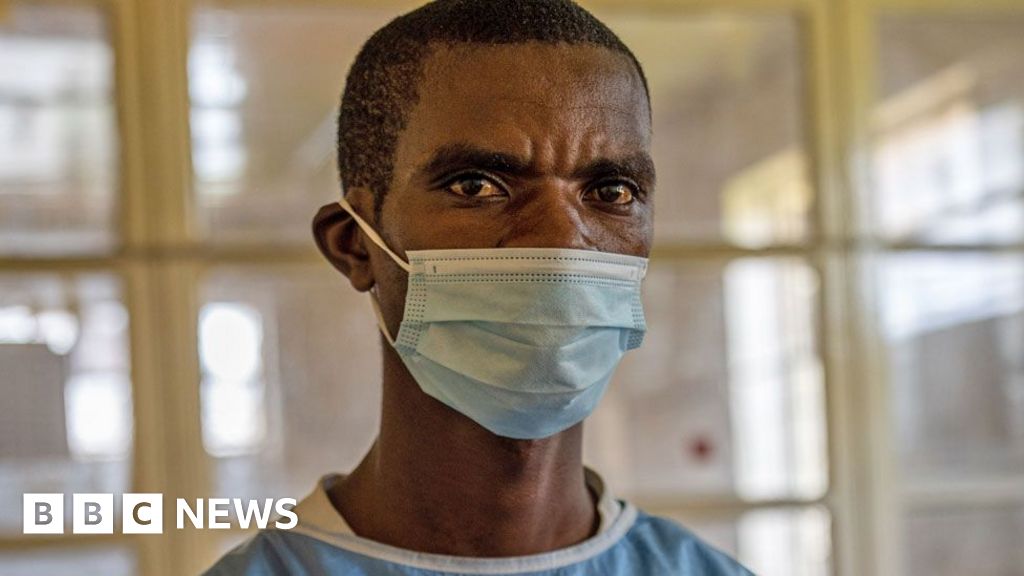Vice President Kashim Shettima on Thursday announced that President Bola Tinubu has approved the establishment of a new Disaster Relief Fund to strengthen Nigeria’s humanitarian response system.
Mr Shettima made this known at the launch of the Humanitarian Supply Chain Management-Partnership for Localisation Project, held at the Presidential Villa, Abuja.
The News Agency of Nigeria (NAN) reports that the vice president was represented by the Deputy Chief of Staff to the President (Office of the Vice President), Ibrahim Hadejia.
The vice president explained that the fund would provide immediate assistance to disaster victims nationwide with a view to complementing the broader localisation framework.
“Inaction is simply not an option, and the cost of failing to address these crises at their roots will be devastating.
“Localisation is not merely about placing local actors at the centre of humanitarian efforts; it is the key to a more inclusive, resilient future for Nigeria,” the VP said.
Mr Shettima said the initiative, which aligns with the Nigeria Localisation Framework, seeks to empower local actors and leverage local resources to address the country’s growing humanitarian needs.
Nigerians need credible journalism. Help us report it.
Support journalism driven by facts, created by Nigerians for Nigerians. Our thorough, researched reporting relies on the support of readers like you.
Help us maintain free and accessible news for all with a small donation.
Every contribution guarantees that we can keep delivering important stories —no paywalls, just quality journalism.
He said climate change, coupled with global economic crises, has deepened the nation’s complex humanitarian situation.
Earlier, the Special Assistant to the President on Special Duties, Emergency and Logistics (Office of The Vice-President), Mohammed Ahmed, noted the importance of a collaborative approach to humanitarian aid.
“There is a need for a whole-of-government and whole-of-society approach. Government must be participatory and inclusive, ensuring that all voices from every segment of society are heard.
“Everyone is impacted by issues like climate change and conflict,” he explained.
Mr Ahmed further noted that the project would support Nigeria’s localisation framework, creating a platform to advance the agenda.
“We have a lot of work to do to meet Nigeria’s targets on this,” he added.
On her part, Fritz Institute’s Project Director, Mitsuko Mizushima, said the initiative is focused on local engagement, pointing out that this project “is designed to give local people a seat at the table.”
She pointed to the growing recognition of the importance of supply chain management and the need for capacity building.
“We are bringing together international and local organisations, along with academia, to develop standardised training in supply chain management.
“Over the years, more than 25,000 people have completed this training. It’s accessible to anyone, anywhere, anytime—and it’s free,” Ms Mizushima said.
Also, Mairo Mandara, the chief adviser and coordinator to the Government of Borno State on Sustainable Development, Partnerships and Humanitarian Support, said localisation means responding to the needs of the people.
She noted that in Borno State, they have defined what they need “and are taking a human-centered approach to humanitarian transition into development.
“Once we remain focused on our transition plans, we cannot go wrong,” Ms Mandara emphasised.
Also, the United States Agency for International Development (USAID) announced that it has directed approximately 27 per cent of its funding to Nigerian-led organisations in a move towards indigenous control of aid operations in the country.
According to USAID’s Acting Deputy Mission Director, Alexis Taylor-Granados, lasting change requires partnership and collaboration.
“We have redoubled our commitment to transferring leadership to local people and institutions who are best positioned to lead change within their own countries and communities.”
On his part, Managing Director of Society for Family Health (SFH), Omokhudu Idogho, said the conversation on localisation has to be looked at from the upstream and downstream sides.
READ ALSO: FEC proposes N47.9 Trillion as Nigeria’s 2025 budget
“Local laws and manufacturing capacity have a big impact on localisation. Nigeria has strong organisations in place to handle complex supply chain management programmes.
”We can transform humanitarian aid delivery with the right capacity,” Mr Idogho said.
(NAN)
Support PREMIUM TIMES' journalism of integrity and credibility
At Premium Times, we firmly believe in the importance of high-quality journalism. Recognizing that not everyone can afford costly news subscriptions, we are dedicated to delivering meticulously researched, fact-checked news that remains freely accessible to all.
Whether you turn to Premium Times for daily updates, in-depth investigations into pressing national issues, or entertaining trending stories, we value your readership.
It’s essential to acknowledge that news production incurs expenses, and we take pride in never placing our stories behind a prohibitive paywall.
Would you consider supporting us with a modest contribution on a monthly basis to help maintain our commitment to free, accessible news?
TEXT AD: Call Willie - +2348098788999

















 English (US) ·
English (US) ·